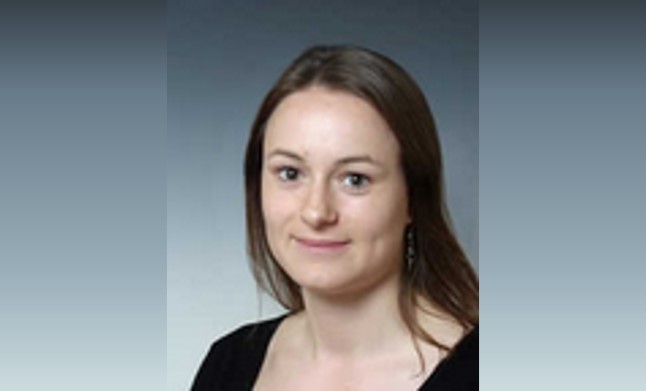Meet our Honorary Staff: Dr Sophie Beckett
"As well as being fascinated by the mineralised plaque stuck to the teeth of people from the past, I have wider interests in biological anthropology."

What does your role as Honorary Fellow at the Melbourne Dental School involve?
I will be developing my research into the composition and structure of dental calculus (mineralised plaque) within archaeological, forensic, and contemporary population contexts. My home is based in the UK so the role will mostly be a remote one. However, I hope to be able to visit the University of Melbourne again soon. I am looking forward to exploring research project collaborations, publications and providing a novel contribution to University teaching.
Can you share some of your career highlights?
I am a Lecturer in Forensic and Archaeological Biominerals at Cranfield University in the UK and have led a variety of modules within Cranfield Forensic Institute's (CFI) MSc Forensic Programme. As Laboratory Manager, I set up CFI's first Forensic Analytical Laboratories following a £1m investment from Cranfield University in 2011 and established commercial Computed Tomography (CT) services.
I worked for Kenyon International Emergency Services Inc. during response operations for several mass fatality incidents, including the 2004 Indian Ocean Tsunami.
As a freelance archaeological scientist and osteologist, I have been awarded funding for a variety public engagement projects in archaeology.
How does your honorary role at the Melbourne Dental School benefit you?
My honorary role will facilitate the development of collaborative research into dental calculus and biological anthropology, providing me with support from an excellent community of world-leading specialists. It also further consolidates the long-standing relationship between Melbourne Dental School and Cranfield Forensic Institute, established by Professor John Clement.
Can you tell us about your clinical/research/education interests?
As well as being fascinated by the mineralised plaque stuck to the teeth of people from the past, I have wider interests in biological anthropology.
I am part of the supervisory team responsible for human remains at the Sedgeford Historical and Archaeological Research Project (SHARP) in Norfolk, UK. This is the UK's largest and longest-running independent, volunteer-run archaeological training and research project. We are currently writing a monograph publication on the osteological analysis of approximately three-hundred skeletons, excavated from an early medieval (Anglo-Saxon) cemetery site. Recent funding is enabling us to record approximately sixty large boxes of disarticulated human bone to the same standards as the articulated burials and look at how donated photographs from volunteer excavators and visitors can help answer post-excavation research questions. My studies of SHARP's assemblage of human remains have included research into the use of tooth measurements to estimate the biological sex of sub-adults and an investigation of third molar agenesis using computed tomography (CT).
I am particularly interested in further exploring how the use of computed tomography can be of benefit to biological (and especially dental) anthropology, the contribution that studies of biological minerals can make to this field, and how participative public engagement can benefit academic research.
Recently, I embarked on developing my artistic side! I have started creating computed tomography (CT scan) art. I scan everyday objects and add colour to emphasise density differences. I am inspired by how CT scans can reveal stunning features within an object, beyond their external aesthetic appeal.
Would you be interested in connecting with other members of the MDS community?
Definitely! Biological anthropology is inherently an interdisciplinary field and I think my research would be greatly enhanced by valuable input from members of the MDS community. Please do get in touch if you would like to know more about my work. Similarly, I am keen to see if there are ways my work can help others within MDS.
—
Dr Sophie Beckett's contact email is listed in the University of Melbourne Outlook Global Address List.